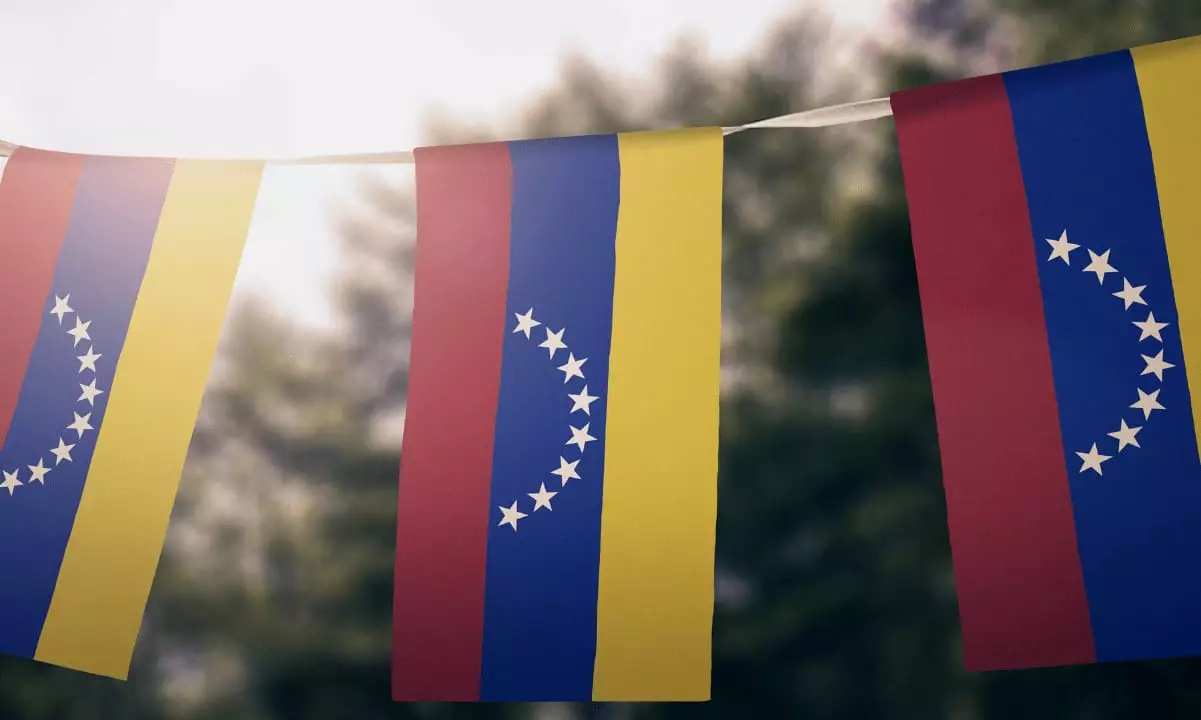Venezuela’s state-owned oil and gas company, PDVSA, is reportedly looking to accelerate its use of cryptocurrency, particularly USDT, the largest stablecoin by market capitalization. The company started integrating USDT for oil sales in 2023 and has now implemented a new policy requiring new customers to have a digital wallet holding cryptocurrency. This move comes in response to the United States’ decision not to renew a general license that temporarily lifted sanctions on Venezuela’s oil and gas sector, leading PDVSA to seek alternative ways to conduct its transactions.
The general license issued in October allowed Venezuela’s oil exports to reach 900,000 barrels per day in March, marking the highest export in four years. However, with the US refusing to renew the license due to the government’s failure to fulfill its commitment to free and fair elections, PDVSA now faces a deadline of May 31 to wind down transactions with its customers and providers. This could significantly impact Venezuela’s ability to export oil and receive payments in the face of reimposed sanctions.
In response to the challenges posed by renewed sanctions, PDVSA is looking to increase its reliance on USDT for oil and fuel exports. The company has already started accepting USDT for transactions and introduced a new contract model in Q1 2024 that requires half of each cargo’s value to be prepaid in USDT. Moreover, PDVSA is now mandating all new customers to have a digital wallet holding cryptocurrency, including older contracts that did not specify the use of USDT. While the use of cryptocurrency in oil and gas transactions is unconventional, PDVSA sees it as a way to reduce the risk of profits getting frozen in foreign bank accounts.
Despite the benefits of using USDT to circumvent sanctions, PDVSA faces challenges in conducting crypto transactions due to the dominant role of the US dollar in the global market. As crypto transactions in the oil sector do not comply with traditional trade regulations, PDVSA must rely on intermediaries to ensure the use of USDT. This reliance on third parties can reduce the company’s oil proceeds and create additional complexities in its operations.
This is not the first time Venezuela has turned to cryptocurrency to evade US sanctions. In 2018, the government introduced Petro, a state-owned, oil-backed cryptocurrency. However, Petro faced criticism and limited adoption both domestically and internationally. Reports emerged in January 2024 that the Venezuelan government decided to end the Petro cryptocurrency nearly six years after its launch, signaling the challenges and limitations of using state-backed digital currencies for international transactions.
Venezuela’s PDVSA is navigating the complex landscape of US sanctions by increasing its use of cryptocurrency, particularly USDT, for oil and gas exports. While this strategy provides a workaround to traditional banking restrictions, it introduces new challenges and dependencies on intermediaries. The future of Venezuela’s oil transactions remains uncertain as the country grapples with geopolitical tensions and economic constraints.

